Resource Center
The Transit Workforce Center is pleased to host a curated collection of publications and other materials to assist stakeholders engaged in transit workforce development. The Resource Center includes case studies, training materials, research reports, and other materials of interest, including publications produced by federal government agencies, transit organizations, and independent research entities. Resources may be filtered by topic, resource type, and transit mode. This TWC blog post explains how to use the Resource Center.
We are continuing to update the Resource Center regularly. Please contact us via the Request Help menu option if you would like assistance using the Resource Center or are looking for resources on a particular topic. We also welcome suggestions of topics or specific resources to add.
Content in external resources linked from the Resource Center is solely the responsibility of the resource authors and does not necessarily reflect the perspectives of or endorsement by the Transit Workforce Center.
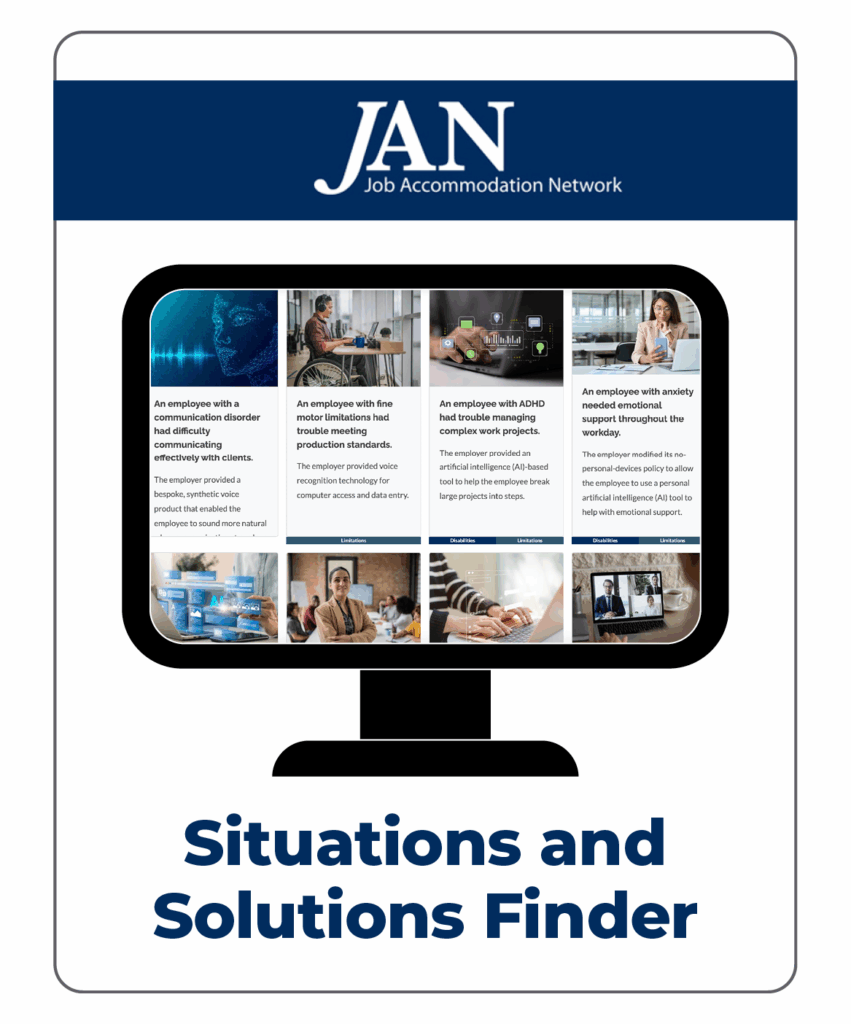
Situations and Solutions Finder
The Situations and Solutions Finder offers a library of workplace accommodation scenarios for industries, such as transportation (e.g., bus drivers, mechanics, dispatchers, etc.) to support workers with disabilities (by disability type, limitations, and occupation). The situations and solutions included are examples of accommodations that were made by JAN customers. Because accommodations are made on a case-by-case basis, these examples may not be effective for every individual or workplace but offer ideas about the types of accommodations that may be possible.
Job Accommodation Network
LEARN MORE
The Job Accommodation Network provides free, expert, and confidential assistance on work accommodations for employers, workers and job seekers with disabilities, and all others in industries, such as transportation.
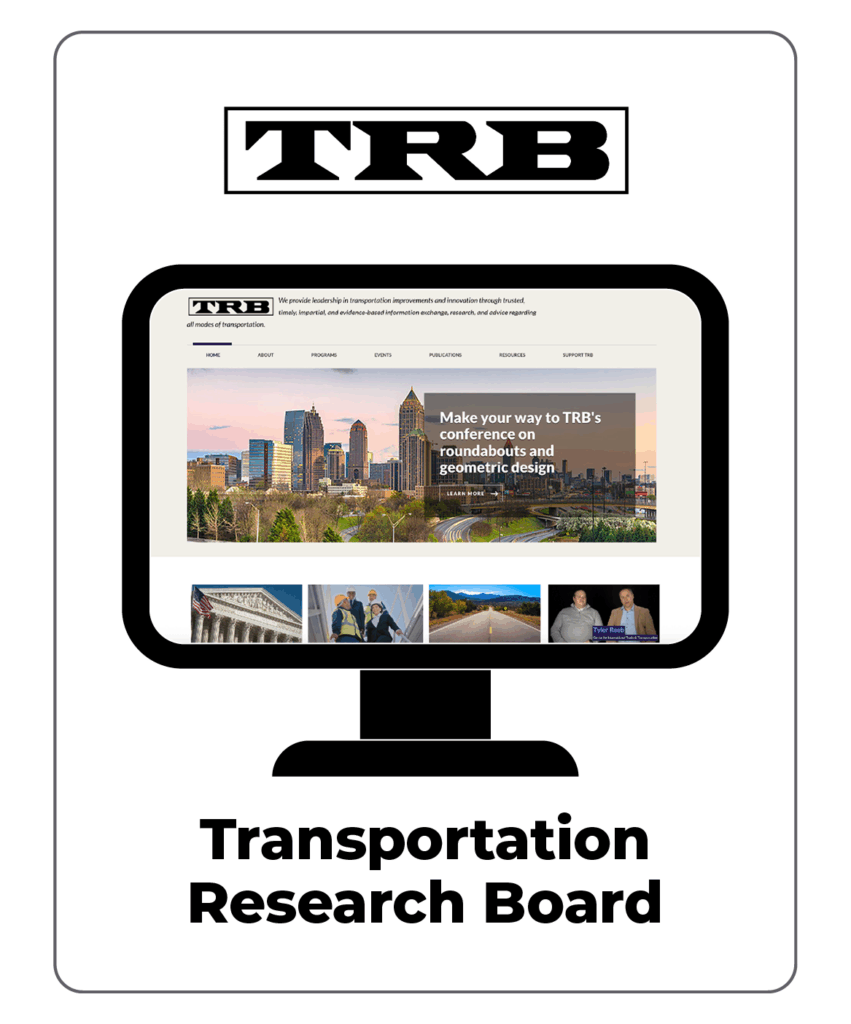
Transportation Research Board
As part of the National Academies of Sciences, Engineering, and Medicine, the Transportation Research Board (TRB) mobilizes expertise, experience, and knowledge to anticipate and solve complex transportation-related challenges. TRB hosts an extensive number of transportation-related committees, including the Committee on Workforce Development and Organizational Excellence, Committee on Transit Management and Performance, Committee on Bus Transit Systems, Committee on Transit Safety and Security, Committee on Transit Data, and others. TRB sponsors research projects though different programs, including the Transit Cooperative Research Program. Published research reports can be found on the National Academies website. TRB also convenes an Annual Meeting with thousands of representatives across the transportation industry to highlight new research, best practices, and more.
Transportation Research Board
TOPICS: Policy and Planning
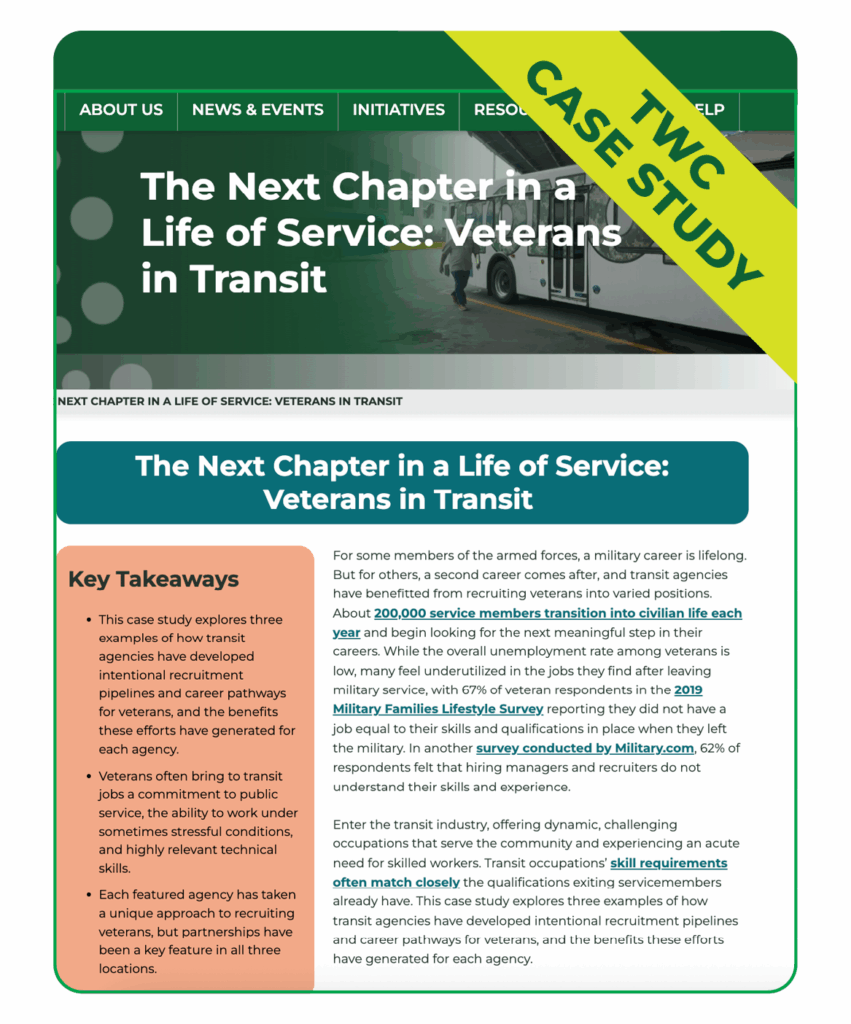
Case Study—The Next Chapter in a Life of Service: Veterans in Transit
For some members of the armed forces, a military career is lifelong. But for others, a second career comes after, and transit agencies have benefitted from recruiting veterans into varied positions. About 200,000 service members transition into civilian life each year and begin looking for the next meaningful step in their careers.
The transit industry offers dynamic, challenging occupations that serve the community and is experiencing an acute need for skilled workers. Transit occupations’ skill requirements often match closely the qualifications exiting servicemembers already have. This case study explores three examples of how transit agencies have developed intentional recruitment pipelines and career pathways for veterans, and the benefits these efforts have generated for each agency.
Transit Workforce Center
March 2025
LEARN MORE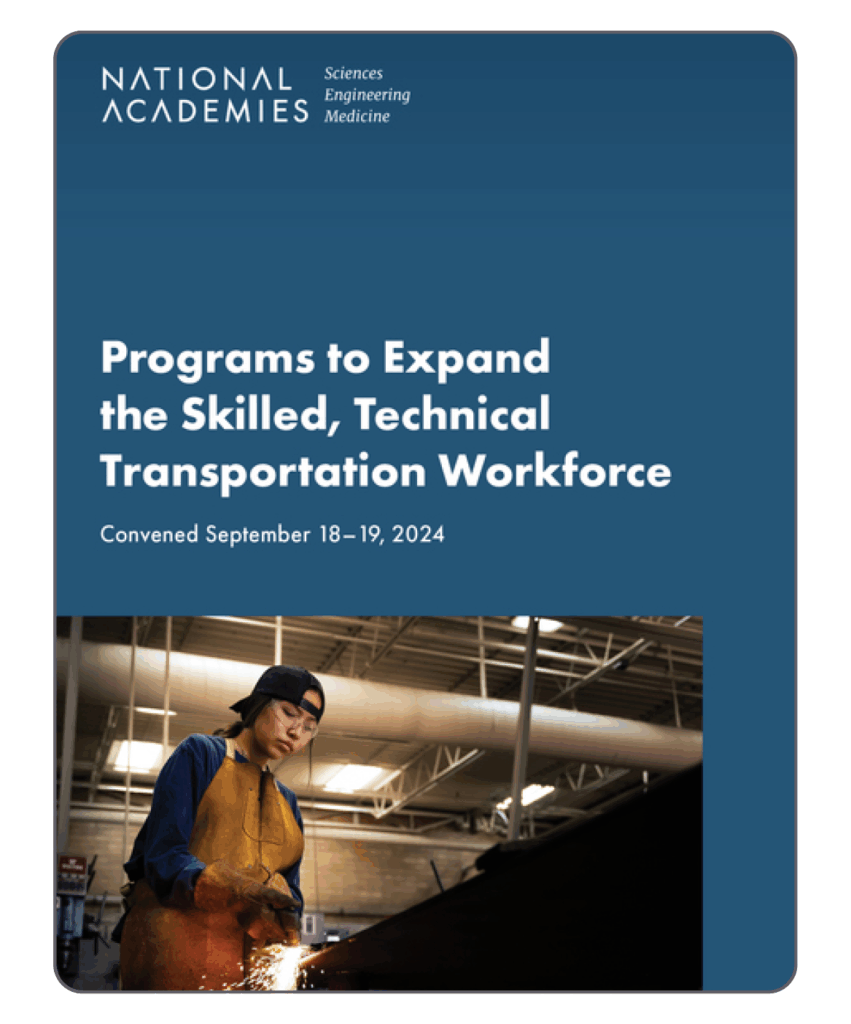
Programs to Expand the Skilled, Technical Transportation Workforce
Programs to Expand the Skilled, Technical Transportation Workforce: Proceedings of a Workshop summarizes the Workforce held in September 2024 at the National Academies of Sciences Building in Washington, DC. The workshop was sponsored by the Federal Transit Administration and the National Science Foundation and brought together experts and educators across academia, government, and industry.
National Academies of Sciences Engineering and Medicine
March 2025
TOPICS: Apprenticeship, Career Pathways, Community Engagement, Hiring and Recruitment, Policy and Planning, Workforce Shortage
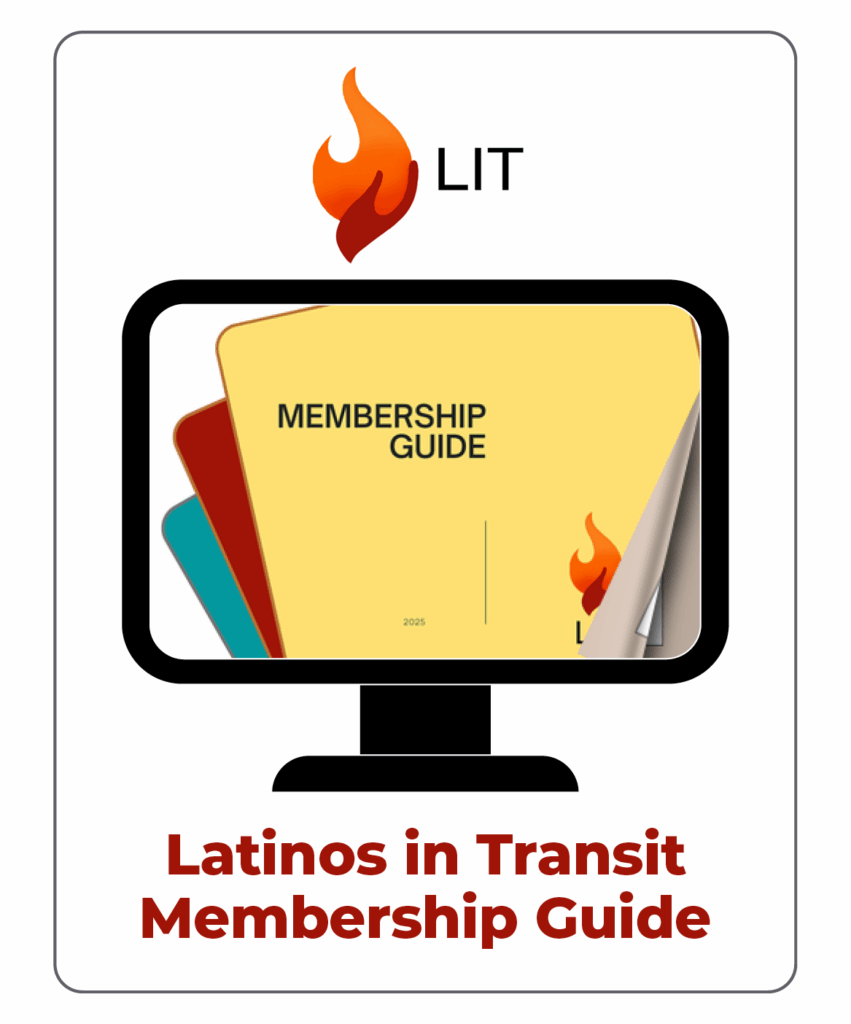
Latinos in Transit Membership Guide
Latinos in Transit is committed to empowering professionals in the transit industry to achieve leadership roles by advancing opportunities for workforce development, mentorship, networking, and education. The LIT Membership Guide explains membership levels and benefits, as well as programming, access, participation, opportunities, and more.
Latinos in Transit
LEARN MORE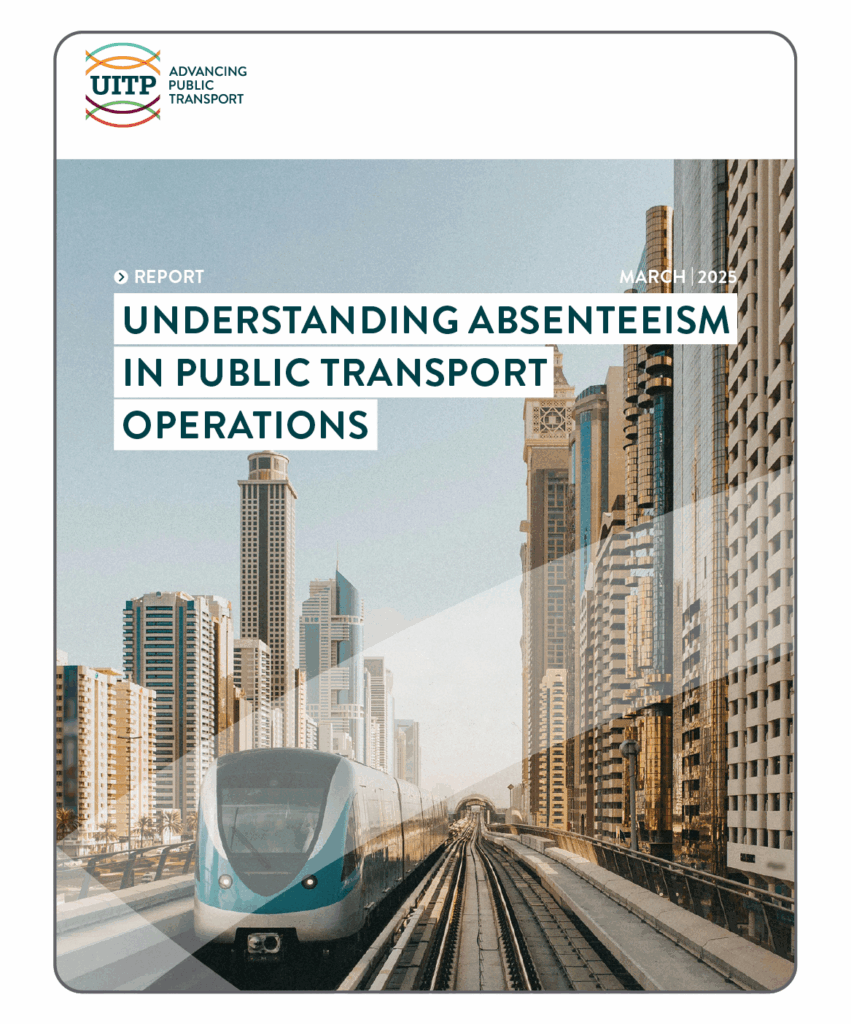
Understanding Absenteeism in Public Transport Operations
Absenteeism has been a persistent problem that can directly impact an organization’s ability to meet the demands of providing service. Factors such as operator job satisfaction, the attractiveness of the profession to current and future workers, and the evolving attitudes towards work all contribute to absenteeism playing a role in workforce availability. Several APTA members participated in a global study on operator absenteeism. The result is a report which aims to describe the causes and impact of absenteeism, while identifying action plans that organizations can use to address the issue. This report was developed by the International Association of Public Transport (UITP).
American Public Transportation Association
February 2025
TOPICS: Policy and Planning, Retention, Workforce Shortage
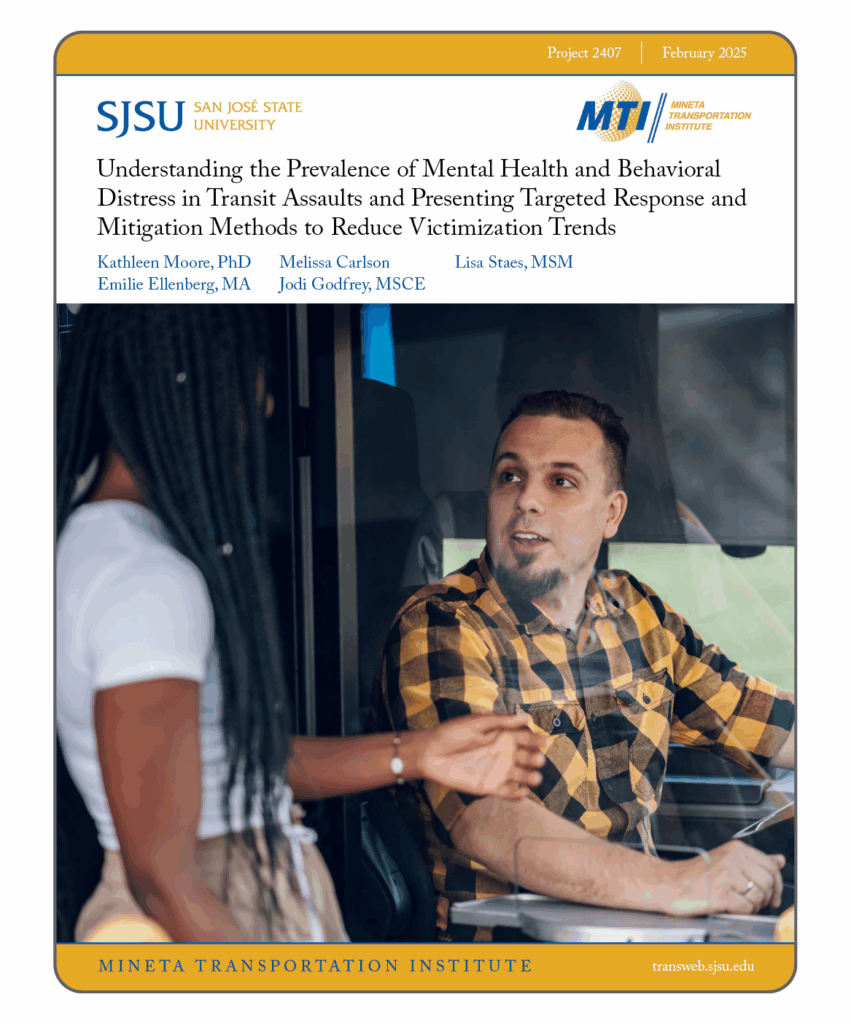
Understanding the Prevalence of Mental Health and Behavioral Distress in Transit Assaults
This research aims to better understand the prevalence of mental health and behavioral distress in transit assaults and present corresponding targeted response and mitigation methods to reduce victimization trends. It includes a literature review, a data presentation and overview of reported public transit assault-related events, an examination of the contributing factors to those events, and documentation of 10 transit agency case studies. It discusses various approaches and strategies that transit agencies have used to prepare transit vehicle operators and other frontline workers to better recognize mental health presentations and engage appropriately. The research team gathered additional data from case study sites, including the methods used to address assault-related challenges and the successful community engagement and partnerships. The report provides findings and policy and practice recommendations.
Mineta Transportation Institute
February 2025
TOPICS: Policy and Planning, Retention, Safety and Health
Understanding the Prevalence of Mental Health and Behavioral Distress in Transit Assaults and Presenting Targeted Response and Mitigation Methods to Reduce Victimization Trends
This research aims to better understand the prevalence of mental health and behavioral distress in transit assaults and present corresponding targeted response and mitigation methods to reduce victimization trends. It includes a literature review, a data presentation and overview of reported public transit assault-related events, an examination of the contributing factors to those events, and documentation of 10 transit agency case studies. It discusses various approaches and strategies that transit agencies have used to prepare transit vehicle operators and other frontline workers to better recognize mental health presentations and engage appropriately. It also highlights evidence-based practices that transit agencies can use to better prepare their systems and provide tools employees can use to better communicate with individuals who may be having mental health-related episodes. The research team gathered additional data from case study sites, including the methods used to address assault-related challenges and the successful community engagement and partnerships. The report provides findings and policy and practice recommendations.
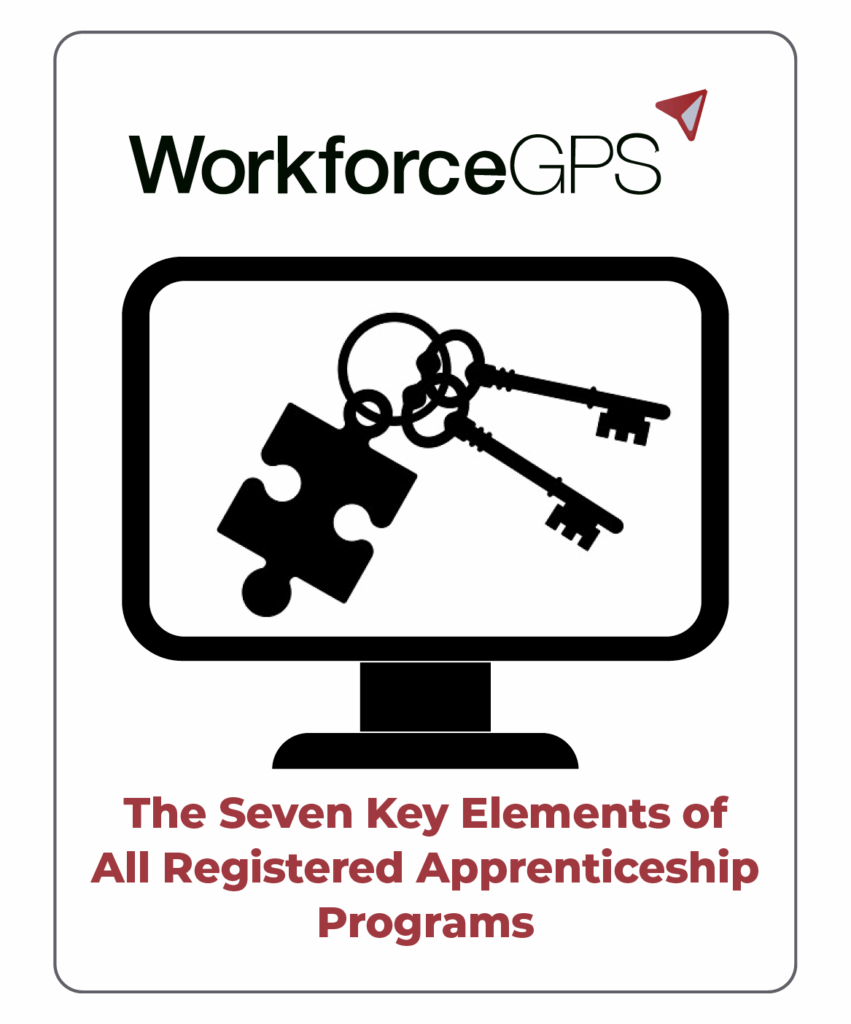
The Seven Key Elements of All Registered Apprenticeship Programs
Registered Apprenticeship is an industry-driven pathway to high-quality careers where employers can develop and prepare their future workforce, and individuals can obtain paid work experience; progressive wage increases; classroom instruction; and a portable, nationally recognized credential. The U.S. Department of Labor recently updated the way we describe Registered Apprenticeship Programs to reflect the worker safety elements embedded in those programs.
Workforce GPS
January 2025
LEARN MORE
Registered Apprenticeship is an industry-driven pathway to high-quality careers where employers can develop and prepare their future workforce, and individuals can obtain paid work experience; progressive wage increases; classroom instruction; and a portable, nationally recognized credential. The U.S. Department of Labor recently updated the way we describe Registered Apprenticeship Programs to reflect the worker safety elements embedded in those programs.






